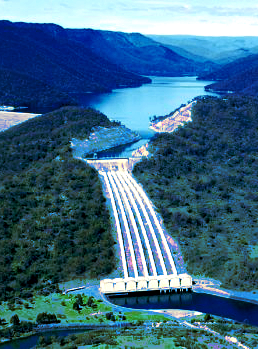AER has Snowy concerns
 The Australian Energy Regulator (AER) has raised concerns about the growing market power of Snowy Hydro.
The Australian Energy Regulator (AER) has raised concerns about the growing market power of Snowy Hydro.
According to the AER, market dominance has the potential to drive up costs in an electricity system already burdened by rising household bills.
The AER's annual assessment of electricity and gas markets has highlighted a concentration of ownership, particularly in New South Wales and Victoria, in flexible generation sources like gas power, hydro, and energy storage.
These sources can be activated as needed to meet peak demand, especially as coal plants are phased out and renewable energy capacity expands.
The AER specifically pointed out the significant market shares held by Snowy Hydro, a government-owned entity, and Origin Energy, which is currently the target of an $18.7 billion takeover bid by Canada's Brookfield.
AER Chair Clare Savage says it is important to maintain open and competitive markets.
“The AER’s anticipated new powers in relation to contract market monitoring will allow us to better monitor participant behaviour and gain sharper insights on issues of competition and market power,” Ms Savage said in the regulator’s annual assessment of electricity and gas markets.
The report highlighted that a few participants control substantial flexible generation capacity in NSW, Victoria, and Tasmania.
Snowy Hydro alone manages more than 5000MW of power plants, a capacity that will increase with the completion of the Snowy 2.0 pumped hydro project and the Kurri Kurri gas power plant in NSW.
Origin Energy, the second-largest provider of flexible generation, was also identified as having significant capacity across the mainland.
The competition regulator is set to announce on October 10 whether it will approve the Brookfield takeover bid.
The AER cautioned that increased concentration in the energy market could lead to inefficient outcomes, either through the exercise of market power or exposure to the strategies of individual participants.
These inefficiencies could have a significant impact on the market if there is low output from intermittent renewable sources over an extended period.
Energy industry leaders, including Alinta Energy's Jeff Dimery, have previously called for the breakup of Snowy Hydro to promote competition and lower consumer prices, given its growing role in peaking power generation and retail operations.
Households have already faced steep increases in retail prices, with bills rising by as much as 20 per cent in 2022-23, according to the AER's findings.
The AER also noted several factors that could further drive up wholesale energy costs in the coming years, including inflation, supply chain disruptions, labour shortages, higher capital costs, and expenses related to maintaining community support for new transmission projects.







 Print
Print